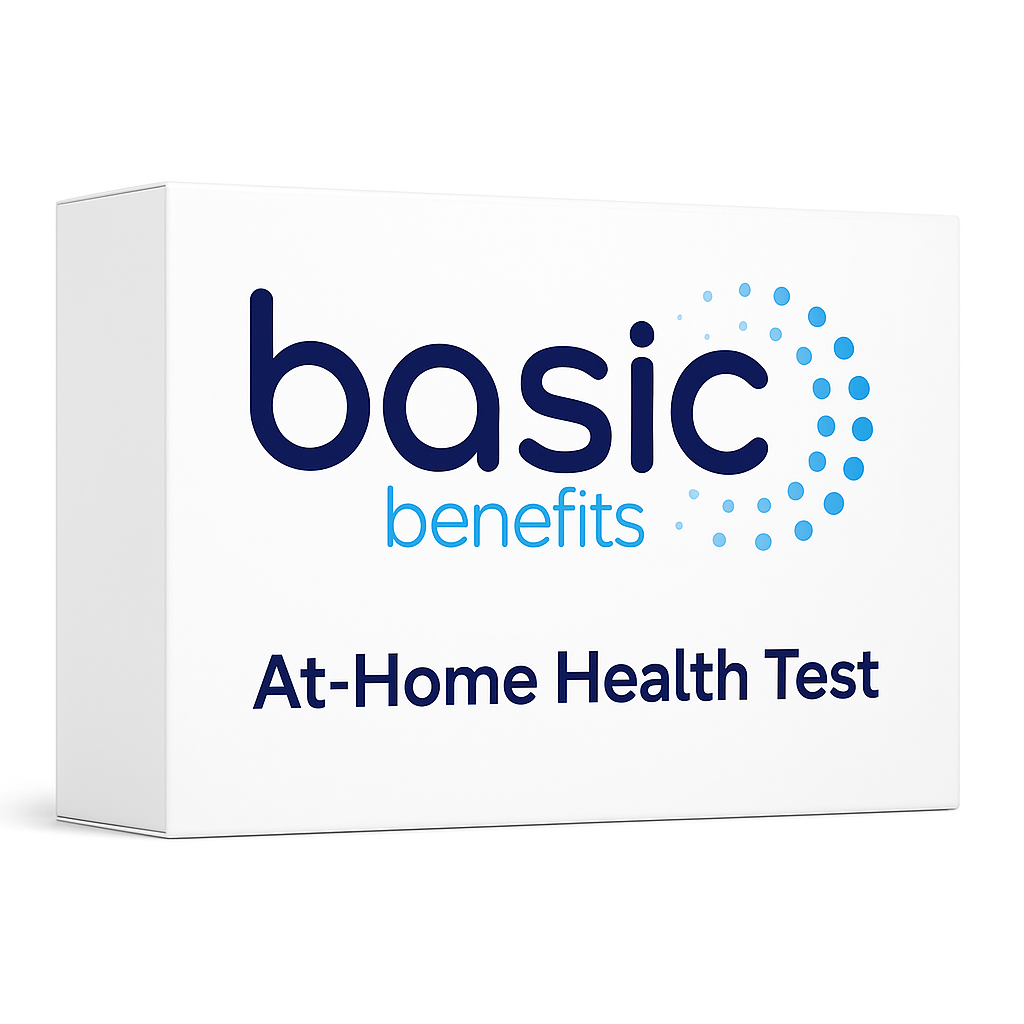Description
What is a Food Sensitivity Test?
Unlike food allergies, reactions from food sensitivities may cause symptoms hours or even days after eating the offending food.
This test measures for IgG antibodies in your blood related to 222 common foods. Elevated antibodies may indicate that you could be sensitive to that food. This test DOES NOT detect allergic reactions to foods, lactose intolerance or celiac disease.
Related symptoms include:
- Fatigue
- Bloating
- Gastrointestinal stress
- Headaches
- Migraines
- Stomach pain
What Do I Need to Do to Prepare for the Test?
It is always important to avoid known food allergies and foods that you know make you feel poorly. Consuming a broad diet prior to conducting a food sensitivity test, while safely avoiding known potentially life threatening foods will provide the best insight into which foods may be problematic. If you suspect that you may have a severe allergic reaction to any suspect food, DO NOT eat it and contact your healthcare practitioner.
Just a simple finger stick, to collect a few drops of whole blood, is all that is required
What Do the Results Mean?
Food sensitivity testing helps you discover which foods in your diet may be a source of symptoms. This test measures your immune system’s reactivity to foods, which can help guide a temporary elimination diet to improve symptoms and overall health.
A simple traffic light system shows which foods have an elevated antibody reaction and which foods may be freely eaten. The report shows U/ml for each food which denotes the level of antibody reactivity detected.
Use of immunosuppressant medications may affect the results. Never discontinue any prescription medications without consulting your doctor first.
If you are experiencing symptoms related to a specific food at any level, that is your threshold for tolerance and we recommend you temporarily remove the food to allow symptoms to resolve and regain tolerance prior to reintroducing it into your diet.
General recommendations include:
RED: ELEVATED ≥30 U/ml
Indicates that a high antibody reaction was detected.
These are the primary foods, which should be eliminated from your diet for at least 3 months. Substitute with NORMAL (green) foods from the same food group. Please refer to Test Report: Food Groups.
With a high number of elevated foods, eliminate the top 5 foods as these are contributing to the most significant immune response and rotate remaining positive foods.
YELLOW: BORDERLINE: 24–29 U/ml
Indicates that a moderate antibody reaction was detected.
These foods should be reduced and rotated, limiting to twice per week, for at least 3 months. Substitute with NORMAL (green) foods from the same food group. For more information regarding how to create a rotation diet please refer to the Patient support Guide.
GREEN: NORMAL ≤23 U/ml
Indicates that no significant reaction was detected.
These foods can be eaten without restriction, unless they have previously caused an adverse reaction. Avoid foods you have a known IgE Type 1 allergy even if they are showing as NORMAL.
NOTE: If after following your diet for 3 months you still have symptoms, these may not be down to food IgG sensitivities and we recommend you seek further medical advice.
In 3-6 months, re-introduce one food at a time and monitor to determine if symptoms return.
If symptoms return, cease eating that food and re-introduce again in 3-6 months. If symptoms continue, remove that food from your diet.
This test alone cannot confirm a food sensitivity or intolerance. Experts recommend that you follow up with a licensed healthcare professional or allergist to review your results along with your medical history, symptoms, diet and other test results prior to making nutrition changes
Food list of 222 foods
- Dairy
- Casein, Cow’s Milk, Goat’s Milk, Sheep Milk, Beta Lactoglobulin, Alpha Lactalbumin, Buffalo Milk
- Grains
- Amaranth, Barley, Buckwheat, Corn, Couscous, Gliadin, Durum Wheat, Malt, Millet, Polenta, Oat, Rye, Rice, Spelt, Tapioca, Whole Wheat, Wheat Bran
- Vegetables
- Artichoke, Arugula, Asparagus, Bean (Green), Bean (Red), Bean (White), Beet, Broccoli, Brussel Sprouts, Caper, Cabbage (Red), Cabbage (Savoy/White), Carrot, Cauliflower, Celery, Chard, Chickpea, Chicory, Cucumber, Eggplant, Fava Bean, Fennel (Leaf), Bell Pepper (Red/Yellow/Green), Leek, Lentil, Lettuce, Radish, Onion, Pea, Potato, Pumpkin, Quinoa, Shallot, Soy Bean, Spinach, Squash (Butternut/Carnival), Sweet Potato, Tomato, Turnip, Watercress, Yuca, Zucchini
- Egg/Meat/Poultry
- Beef, Chicken, Duck, Egg White, Egg Yolk, Goat, Horse, Lamb, Ostrich, Ox, Partridge, Pork, Quail, Rabbit, Turkey, Veal, Venison, Wild Boar
- Fruit
- Apple, Apricot, Avocado, Banana, Blackberry, Blueberry, Cherry, Cranberry, Blackcurrent, Date, Fig, Grape, Grapefruit, Guava, Melon (Galia/Honeydew), Kiwi, Lemon, Lime, Lychee, Tangerine, Mango, Nectarine, Olive, Orange, Papaya, Peach, Pear, Pineapple, Plum, Pomegranate, Raspberry, Rhubarb, Strawberry, Watermelon, Mulberry, Raisin
- Herbs/Spices
- Anise, Basil, Bayleaf, Chamomile, Chilli (Red) Cinnamon, Clove, Cayenne, Cilantro (leaf), Cumin, Curry (Mixed Spice) Dill, Garlic, Ginger, Ginkgo, Ginseng, Hops, Licorice, Marjoram, Mint, Mustard Seed, Nettle, Nutmeg, Parsley, Peppercorn (Black/White), Peppermint, Rosemary, Saffron, Sage, Tarragon, Thyme
- Fish/Seafood
- Spirulina, Espaguette (Spaghetti Algae), Alga Wakame (Seaweed), Anchovy, Bass, Barnacle, Carp, Caviar, Clam, Cockle (Saltwater clam), Cod, Crab, Cuttlefish, Eel, Haddock, Hake, Herring, Lobster, Mackerel, Perch, Monkfish, Mussel, Octopus, Oyster, Pike, Plaice, Razor Clam, Salmon, Sardine, Scallop, Seabream (Red), Seabream (Gilthead) Shrimp/Prawn, Swordfish, Sole, Squid, Trout, Tuna, Turbot, Winkle
- Nuts/Seeds
- Almond, Brazil Nut, Cashew Nut, Coconut, Flaxseed, Hazelnut, Macadamia Nut, Peanut, Pine Nut, Pistachio, Sesame Seed, Sunflower Seed, Walnut, Rapeseed, Tiger Nut
- Other
- Aloe Vera, Agar, Cane Sugar, Carob, Chestnut, Cocoa Bean, Coffee, Cola Nut, Honey, Mushroom, Tea (Black) Tea (Green), Transglutaminase, Yeast (Bakers) Yeast (Brewers)
Included: 1 Food Sensitivity Testing kit, and a pre-addressed return envelope (Postage Paid)


